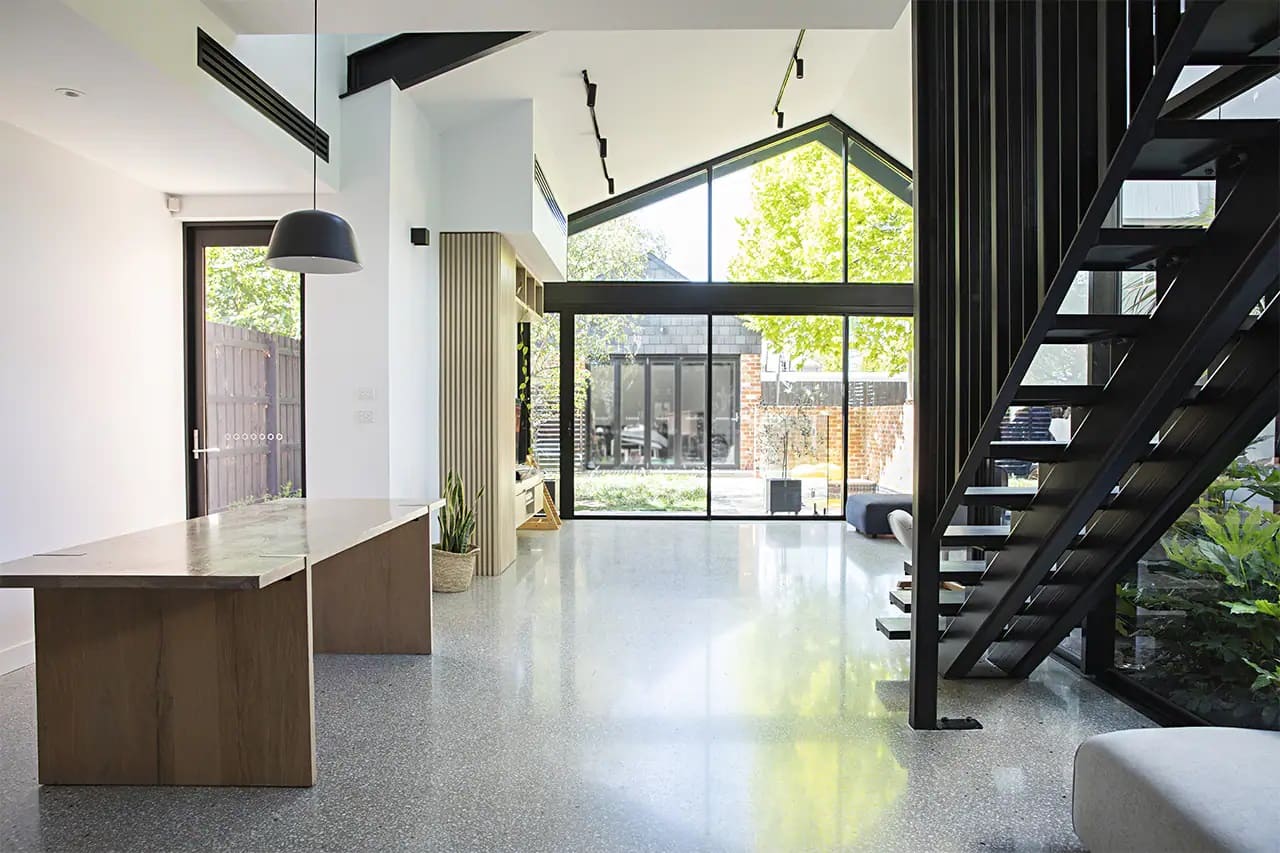

Articles
How Much Does A Concrete Floor Cost
Modified: December 7, 2023
Find out the average cost of concrete flooring in this informative article. Get an idea of prices and factors that affect the overall expenses.
(Many of the links in this article redirect to a specific reviewed product. Your purchase of these products through affiliate links helps to generate commission for Storables.com, at no extra cost. Learn more)
Introduction
When it comes to flooring options, concrete floors have gained popularity for their durability, versatility, and sleek appearance. Whether you are considering installing a concrete floor in your home, office, or commercial space, one of the first questions that comes to mind is how much it will cost.
The cost of a concrete floor can vary depending on several factors. In this article, we will explore the factors that affect the cost of a concrete floor, the different types of concrete flooring available, and provide an overview of the average cost of installation. Additionally, we will discuss additional costs to consider and the pros and cons of DIY installation versus hiring a professional.
By understanding the factors that influence the cost and considering all the related expenses, you can make an informed decision that fits your budget and aesthetic requirements.
Key Takeaways:
- Concrete floor costs vary based on factors like type, size, and complexity. Consider additional expenses and weigh DIY vs. professional installation to make an informed budget-friendly decision.
- From polished to stained and stamped, concrete flooring offers diverse options. Factor in maintenance, customization, and budget when selecting the right type for your space.
Read more: How Much Does A Concrete Porch Cost
Factors Affecting Concrete Floor Cost
Several factors contribute to the overall cost of a concrete floor installation. These factors can include:
- Type of concrete flooring
- Size of the area to be covered
- Complexity of the installation process
- Add-ons and customization options
- Location and accessibility
- Preparation and groundwork required
- Any necessary repairs or enhancements
The price can vary significantly based on these variables. For example, a basic concrete floor installation in a small room may cost less than a decorative concrete overlay in a large commercial space.
Types of Concrete Flooring
Concrete floors offer a range of options to suit different preferences and purposes. Some of the most common types of concrete flooring include:
- Polished Concrete Floors: These floors are created by grinding the concrete surface to achieve a smooth, glossy finish. They are popular for their low maintenance and high durability.
- Stained Concrete Floors: Staining the concrete surface can add color and depth, creating a unique and vibrant look. This is a cost-effective way to enhance the appearance of concrete floors.
- Stamped Concrete Floors: By imprinting patterns or textures onto the concrete surface, stamped concrete floors mimic other materials like wood or stone. This option offers versatility in design.
- Epoxy Floors: Epoxy coatings are applied to the concrete surface to create a seamless, durable, and decorative finish. They are commonly used in commercial and industrial spaces.
Each type of concrete flooring has its own advantages and costs, so it is important to consider your specific needs and budget when choosing the right option.
Key Takeaways:
- Concrete floor costs vary based on factors like type, size, and complexity. Consider additional expenses and weigh DIY vs. professional installation to make an informed budget-friendly decision.
- From polished to stained and stamped, concrete flooring offers diverse options. Factor in maintenance, customization, and budget when selecting the right type for your space.
Read more: How Much Does A Concrete Porch Cost
Factors Affecting Concrete Floor Cost
Several factors contribute to the overall cost of a concrete floor installation. By understanding these factors, you can get a better idea of how much you can expect to pay for your project. Here are the main factors that can affect the cost:
1. Type of Concrete Flooring:
The type of concrete flooring you choose will have a significant impact on the total cost. Different types, such as polished concrete, stained concrete, stamped concrete, and epoxy floors, vary in terms of materials, labor, and complexity of installation.
Read more: How Much Does A Concrete Fence Cost
2. Size of the Area:
The size of the area to be covered with a concrete floor is another important factor. The larger the space, the more materials and labor will be required, increasing the overall cost. Conversely, smaller areas tend to cost less.
3. Complexity of the Installation Process:
If the installation process involves intricate designs, patterns, or customizations, it will require more time and labor, resulting in higher costs. Simple, straightforward installations are generally more affordable.
4. Add-Ons and Customization Options:
Additional features or add-ons, such as decorative elements, colorants, or engravings, can add to the cost of a concrete floor. These customization options provide a unique and personalized touch but come at an extra expense.
5. Location and Accessibility:
The location of the project and its accessibility can impact the cost. In remote areas or places that are difficult to reach, transportation and labor costs may be higher, resulting in increased overall expenses.
6. Preparation and Groundwork:
Before installing a concrete floor, proper preparation and groundwork are essential. This may include removing existing flooring, leveling the surface, or dealing with any underlying issues. The complexity of these preparatory tasks can influence the cost.
7. Necessary Repairs or Enhancements:
If the existing concrete surface requires repairs or enhancements, such as crack repairs or surface grinding, these additional services will add to the overall cost. Assessing and addressing any existing issues is crucial for a successful installation.
It’s important to note that each project is unique, and the costs can vary significantly depending on these factors. To get an accurate estimate, it is advisable to consult with a professional concrete contractor who can assess your specific requirements and provide a detailed quote.
Understanding the factors that affect concrete floor costs will help you plan your budget accordingly and ensure you get the desired results within your financial constraints.
Types of Concrete Flooring
Concrete floors offer a wide range of options to suit different preferences and purposes. Whether you are looking for a sleek and polished look or a more decorative and textured finish, there is a type of concrete flooring that can meet your needs. Let’s explore some of the most common types:
1. Polished Concrete Floors:
Polished concrete floors are created by grinding the concrete surface to achieve a smooth, glossy finish. This type of flooring is popular for its durability, low maintenance requirements, and modern aesthetic. It can be customized by adding dyes or stains to achieve various colors and patterns.
2. Stained Concrete Floors:
Staining the concrete surface can add color and depth to your floors. Acid-based stains penetrate the concrete and create a natural, marbled effect, while water-based stains offer more color options. Stained concrete floors are a cost-effective way to enhance the appearance of your space and create a unique design element.
3. Stamped Concrete Floors:
Stamped concrete floors mimic the appearance of other materials, such as wood, stone, or tile. This type of flooring is achieved by imprinting patterns or textures onto the concrete surface while it is still wet. Stamped concrete offers versatility in design and can be personalized to match the style of your space.
4. Epoxy Floors:
Epoxy floors are created by applying a resin-based coating to the concrete surface. This coating creates a seamless, durable, and highly customizable finish. Epoxy floors are commonly used in commercial and industrial settings due to their resistance to chemicals, abrasion, and impact. They are available in a variety of colors and can incorporate decorative elements like flakes or metallic pigments.
5. Microtopping:
Microtopping involves the application of a thin layer of cement-based overlay on top of the existing concrete surface. This overlay can be tinted or stained to achieve a desired color and can be further enhanced with textures or patterns. Microtopping is an ideal option for restoring worn-out concrete surfaces, as it provides a fresh and modern appearance.
Read more: How Much Does A Floor Plan Cost
6. Polished Overlays:
Polished overlays are a combination of a microtopping and polished concrete. This option is ideal for those looking to enhance the appearance of an existing concrete floor without the need for extensive demolition. Polished overlays can be customized with stains, dyes, and aggregates to create a unique and stylish look.
These are just a few of the many types of concrete flooring available. Each offers its own benefits and visual appeal. Consider your budget, desired style, and maintenance requirements when selecting the right type of concrete flooring for your space.
Average Cost of Concrete Floor Installation
When it comes to installing a concrete floor, the cost can vary depending on several factors such as the type of flooring, the size of the area, and the complexity of the installation process. While it is challenging to provide an exact cost without specific project details, we can offer a general overview of the average cost range for concrete floor installations.
Basic Concrete Floor Installation:
A basic concrete floor installation typically involves pouring and finishing the concrete surface without any additional decorative elements. On average, you can expect to pay between $2 to $8 per square foot for a basic concrete floor installation. This cost range takes into account labor, materials, and equipment required for the project.
Polished Concrete Floors:
Polished concrete floors, which offer a sleek and modern look, tend to be on the higher end of the cost spectrum. The average cost for polished concrete floors, including the grinding and polishing process, ranges between $3 to $12 per square foot. The cost can increase depending on factors such as the complexity of the design, decorative elements, and any additional treatments or coatings.
Read more: How Much Does It Cost To Do A Concrete Patio
Stained Concrete Floors:
Stained concrete floors are a popular option for adding color and depth to your space. The cost for stained concrete floors typically falls in the range of $2 to $10 per square foot. The price can vary depending on the type of stain used, the intricacy of the design, and any additional sealants or finishes applied.
Stamped Concrete Floors:
Stamped concrete floors offer the look of other materials such as wood or stone but at a more affordable cost. The average price for stamped concrete floors ranges from $4 to $15 per square foot. Factors that can influence the cost include the complexity of the pattern or texture, the number of colors used, and any additional treatments or enhancements.
Epoxy Floors:
Epoxy floors are a durable and customizable option commonly used in commercial and industrial spaces. The average cost for epoxy floors starts at around $3 per square foot but can go up to $12 or more depending on factors such as the level of customization, the size of the area, and the condition of the existing concrete surface.
It’s important to note that these cost ranges are provided as a general guideline and can vary depending on your specific project requirements and location. Additional costs, such as site preparation, demolition, floor preparation, and any necessary repairs or enhancements, should also be considered when planning your budget.
If you want an accurate estimate for your concrete floor installation, it is recommended to consult with a professional concrete contractor who can assess your project’s unique aspects and provide you with a detailed cost breakdown.
Additional Costs to Consider
When planning for a concrete floor installation, it is important to consider additional costs that may arise. These costs can vary depending on the specific project requirements and any customization or enhancements you desire. Here are some additional costs to keep in mind:
1. Site Preparation:
Before installing a concrete floor, the site may require preparation, which can incur additional costs. This may include demolition of existing flooring, removal of debris, or leveling the ground to ensure a smooth and even surface for the new concrete floor.
2. Decorative Elements:
If you want to add decorative elements to your concrete floor, such as custom designs, patterns, or logos, there may be additional costs involved. These can include the cost of materials, specialized tools, and the expertise required for creating intricate or personalized designs.
3. Surface Treatments and Coatings:
Applying surface treatments or protective coatings on your concrete floor can enhance its durability and aesthetics. However, these treatments may come at an extra cost. Examples include epoxy coatings, sealants, or anti-slip finishes.
4. Moisture Mitigation:
In some cases, moisture issues may need to be addressed before installing a concrete floor. Moisture mitigation measures, such as moisture barriers or vapor retarders, may need to be installed to prevent moisture-related damage and ensure the longevity of the floor. These measures can add to the overall cost.
5. Removal and Disposal:
If you need to remove an existing flooring material, such as tiles or carpet, before installing the concrete floor, there may be additional costs associated with removal and disposal. This can include labor fees, waste disposal fees, and any necessary repairs to the subfloor.
6. Ongoing Maintenance:
While concrete floors are known for their durability, they still require regular maintenance to keep them in optimal condition. Ongoing maintenance costs may include periodic sealing, waxing, or polishing to maintain the appearance and protect the surface of the floor.
It is important to discuss these additional costs with your contractor to ensure that they are accounted for in your budgeting. By considering these factors, you can have a clearer understanding of the total cost of your concrete floor installation project and avoid any surprises or unexpected expenses.
DIY vs. Hiring a Professional
When it comes to installing a concrete floor, you have the option to either tackle the project yourself or hire a professional contractor. Both options have their advantages and considerations, so it’s important to evaluate your skills, resources, and the complexity of the job before making a decision.
DIY Concrete Floor Installation:
Opting for a DIY concrete floor installation can be a cost-effective choice, especially if you have experience working with concrete or are willing to learn through research and practice. Here are some factors to consider if you are thinking about taking the DIY route:
- Skill Level: Concrete work requires knowledge of the proper techniques and tools. Assess your skill level and determine if you have the necessary experience to achieve the desired results.
- Time and Effort: Installing a concrete floor can be a time-consuming task, especially if you are doing it alone. Consider the amount of time and effort you are willing to invest in the project.
- Tools and Equipment: DIY installations will require you to have the necessary tools and equipment. This may include items such as concrete mixers, trowels, float pans, and power tools.
- Cost Savings: By doing the installation yourself, you can potentially save money on labor costs. However, it’s important to weigh the potential savings against the risk of mistakes or the need for repairs down the line.
Hiring a Professional:
Hiring a professional concrete contractor can provide you with peace of mind, expertise, and efficient results. Here are some reasons to consider hiring a professional for your concrete floor installation:
- Expertise and Experience: Professional contractors have the knowledge and experience to deliver high-quality results. They can navigate potential challenges, handle complex installations, and provide guidance on design options and material selection.
- Time and Efficiency: Professionals are equipped with the right tools, equipment, and a skilled team, allowing for efficient completion of the project. This saves you time and ensures a faster turnaround.
- Quality Assurance and Warranty: Reputable contractors often provide warranties on their workmanship, giving you peace of mind in case any issues arise. They also have access to quality materials, ensuring a durable and long-lasting concrete floor.
- Safety: Concrete work can involve heavy materials and potentially hazardous situations. Hiring professionals reduces the risk of accidents or injuries during the installation process.
Ultimately, the choice between DIY and hiring a professional depends on your level of expertise, available time, budget, and the complexity of the project. While DIY installations can be rewarding, professional contractors offer expertise, efficiency, and long-term reliability. It may be wise to consult with a professional to assess your specific needs and get a better understanding of the scope of the project.
Whether you decide to take on the project yourself or hire a professional, it’s important to prioritize safety, follow proper installation techniques, and ensure that the finished concrete floor meets your expectations in terms of quality and aesthetic appeal.
Conclusion
Installing a concrete floor can be a great investment for your space, offering durability, versatility, and a modern aesthetic. However, before embarking on a concrete floor installation project, it’s important to consider various factors that can affect the cost and outcome of the project.
We explored the different factors that can impact the cost of a concrete floor, including the type of flooring, size of the area, complexity of the installation process, add-ons and customization options, location, and necessary preparations or repairs. By understanding these factors, you can better estimate the cost and plan your budget accordingly.
There are various types of concrete flooring to choose from, each with its own advantages and costs. Whether you opt for polished concrete floors, stained concrete floors, stamped concrete floors, or epoxy floors, it’s crucial to consider your aesthetic preferences, maintenance requirements, and budget when making your selection.
Additionally, we highlighted the additional costs that may arise during a concrete floor installation, such as site preparation, decorative elements, surface treatments, moisture mitigation, removal and disposal, and ongoing maintenance. Taking these costs into account will help you avoid surprises and accurately budget for your project.
Lastly, we discussed the pros and cons of DIY installation versus hiring a professional contractor. While DIY can be cost-effective, it requires the necessary skills, time, and tools. Hiring a professional offers expertise, efficiency, and quality assurance, but comes at a higher cost. Consider your abilities, resources, and the complexity of the project when making this decision.
In conclusion, a concrete floor installation can transform your space and provide a long-lasting, visually appealing surface. By understanding the factors that impact the cost, considering the various types of concrete flooring available, accounting for additional expenses, and weighing the options of DIY versus hiring a professional, you can make an informed decision that meets your budget and aesthetic requirements.
Whether you choose to take on the project yourself or enlist the help of a professional, a well-planned and properly executed concrete floor installation can contribute to the beauty and functionality of your space for years to come.
Frequently Asked Questions about How Much Does A Concrete Floor Cost
Was this page helpful?
At Storables.com, we guarantee accurate and reliable information. Our content, validated by Expert Board Contributors, is crafted following stringent Editorial Policies. We're committed to providing you with well-researched, expert-backed insights for all your informational needs.
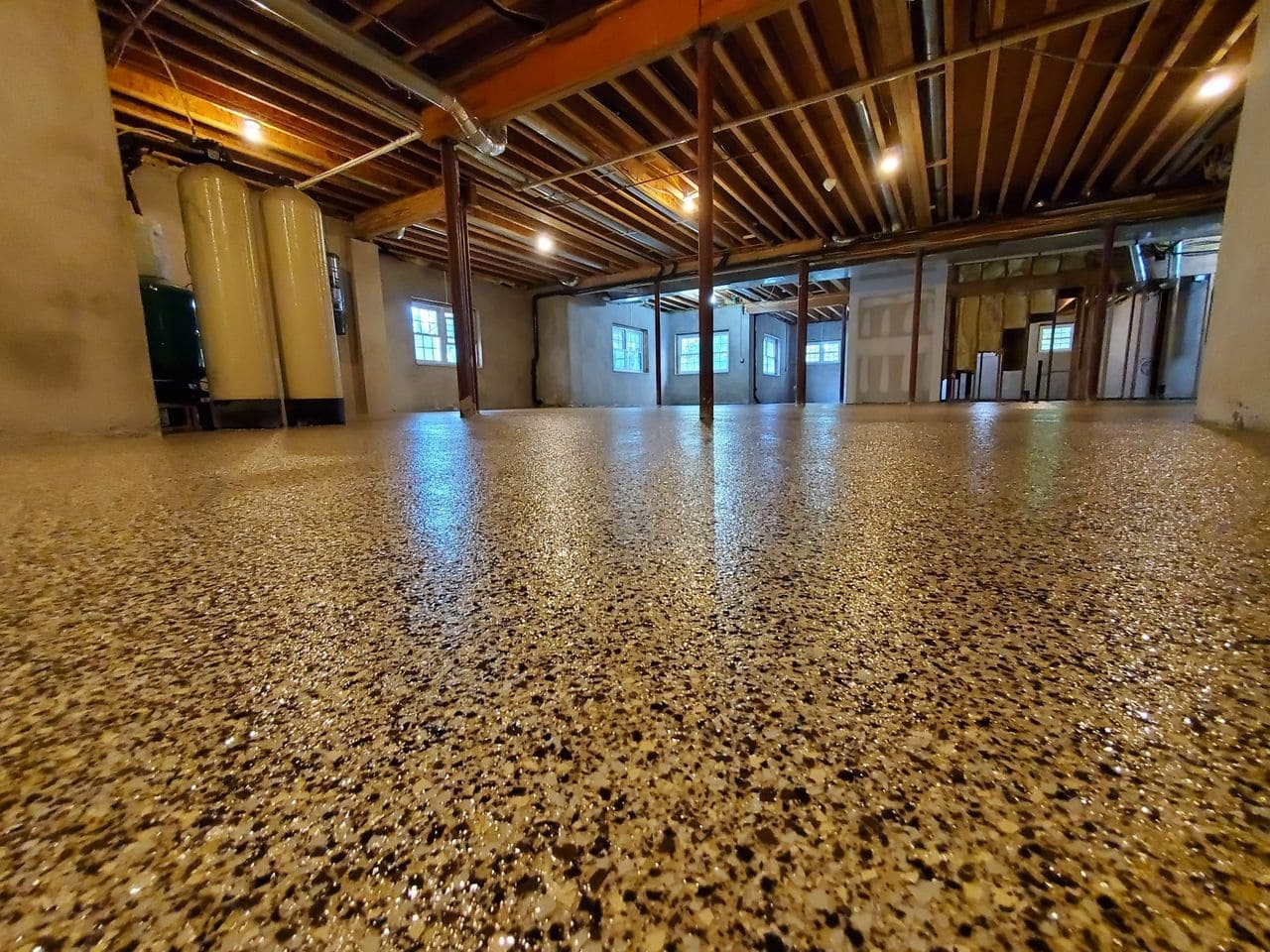
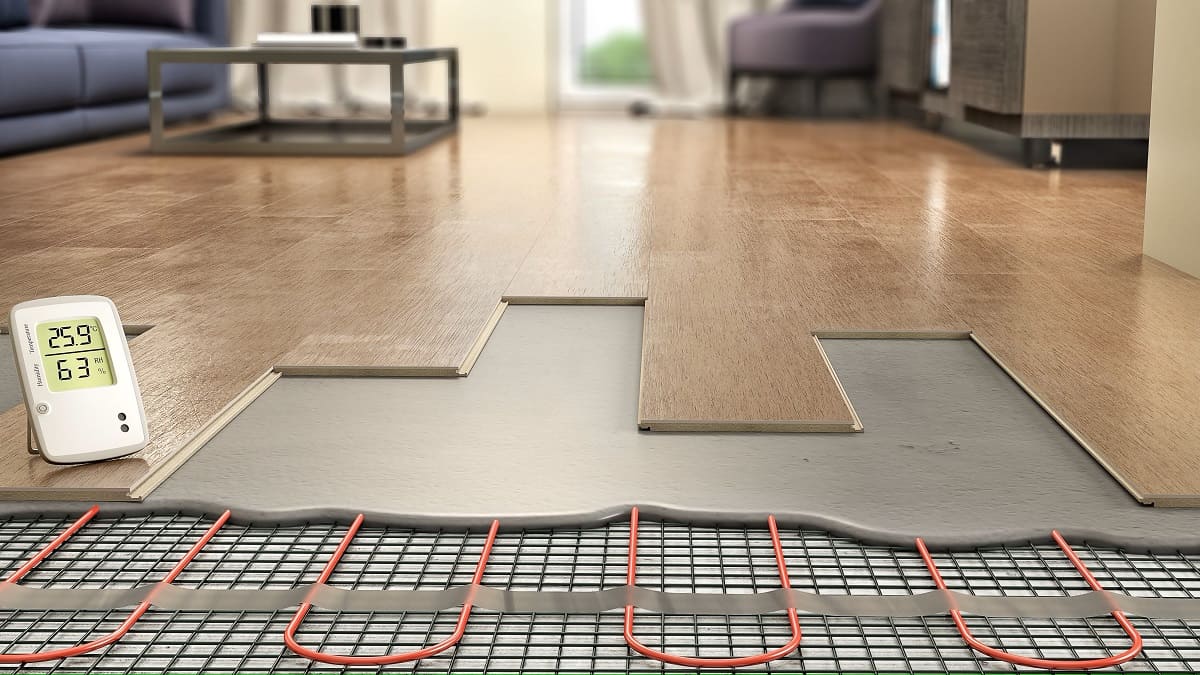
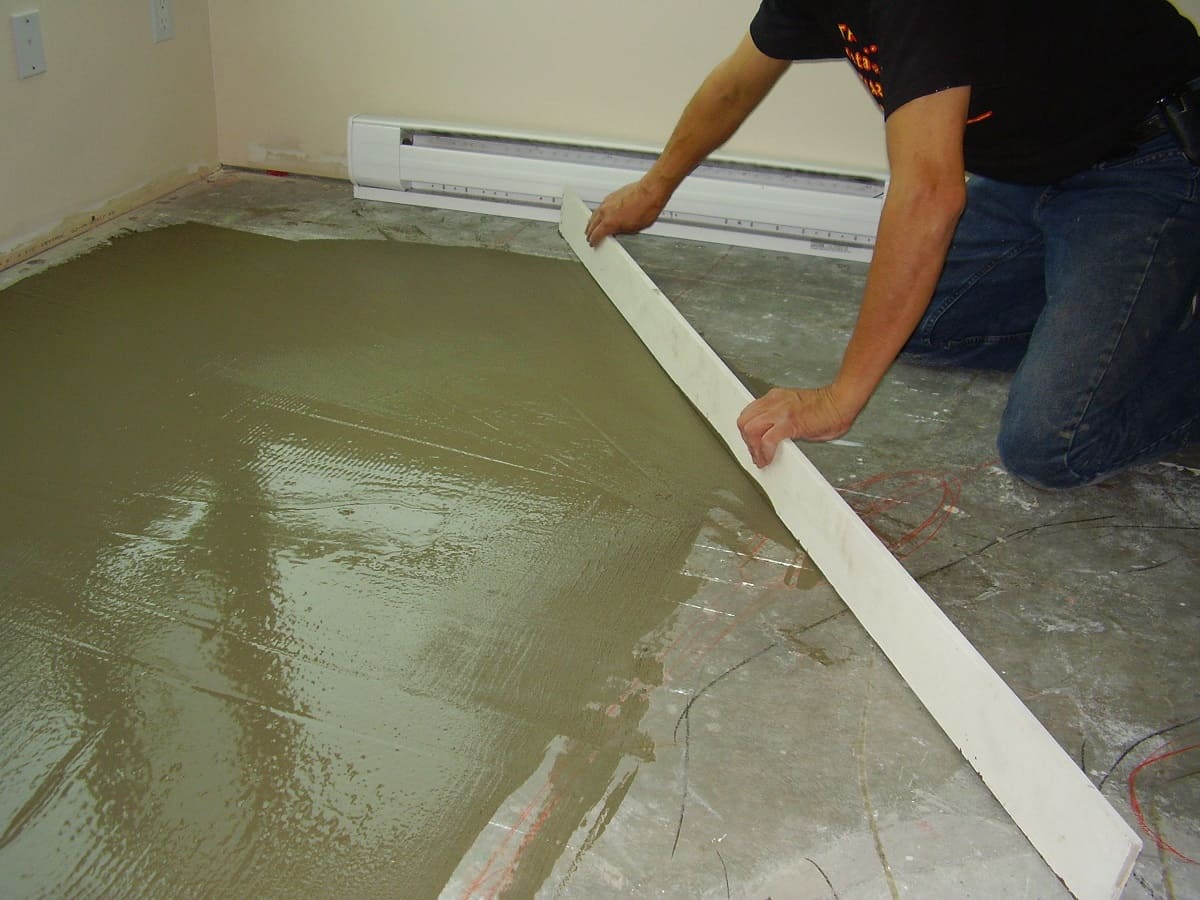
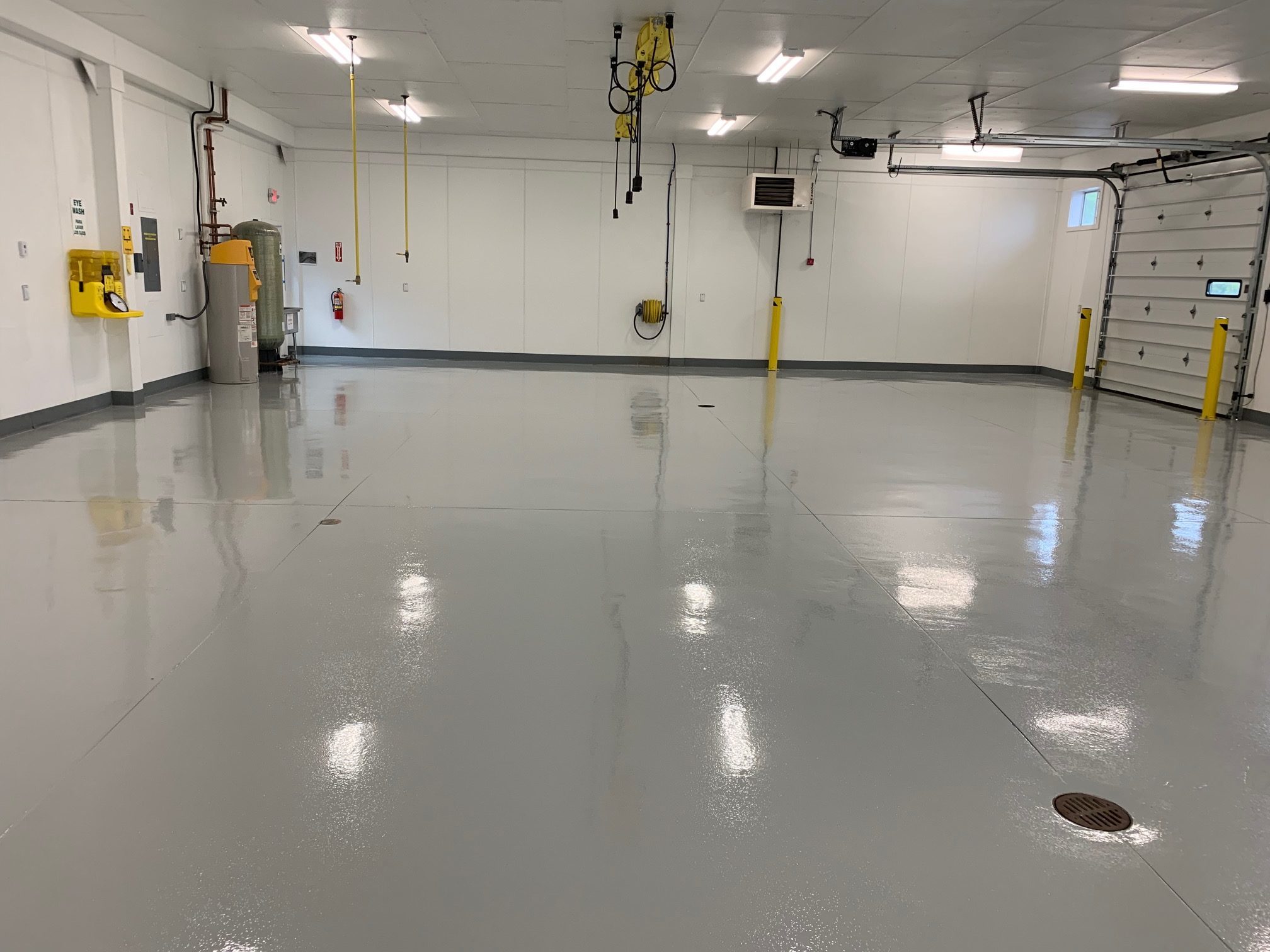
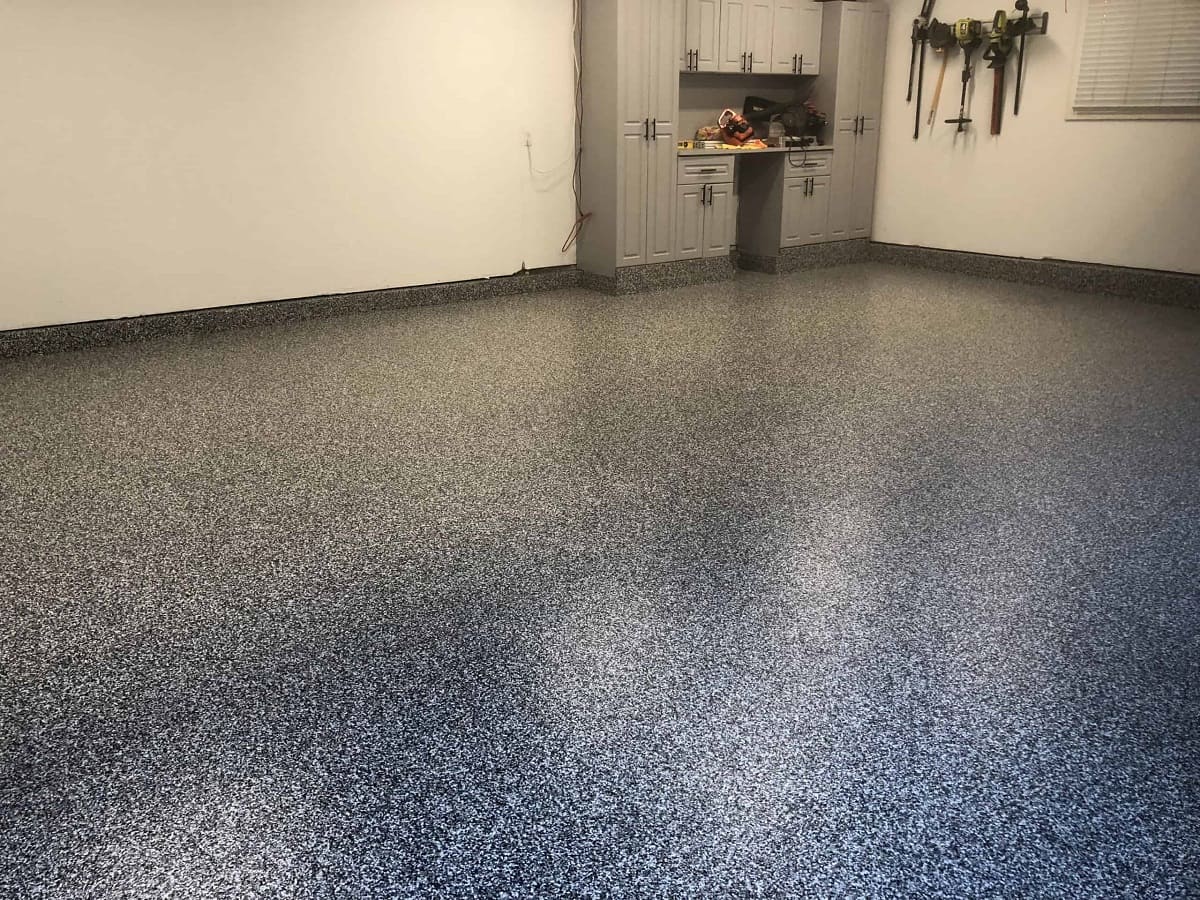
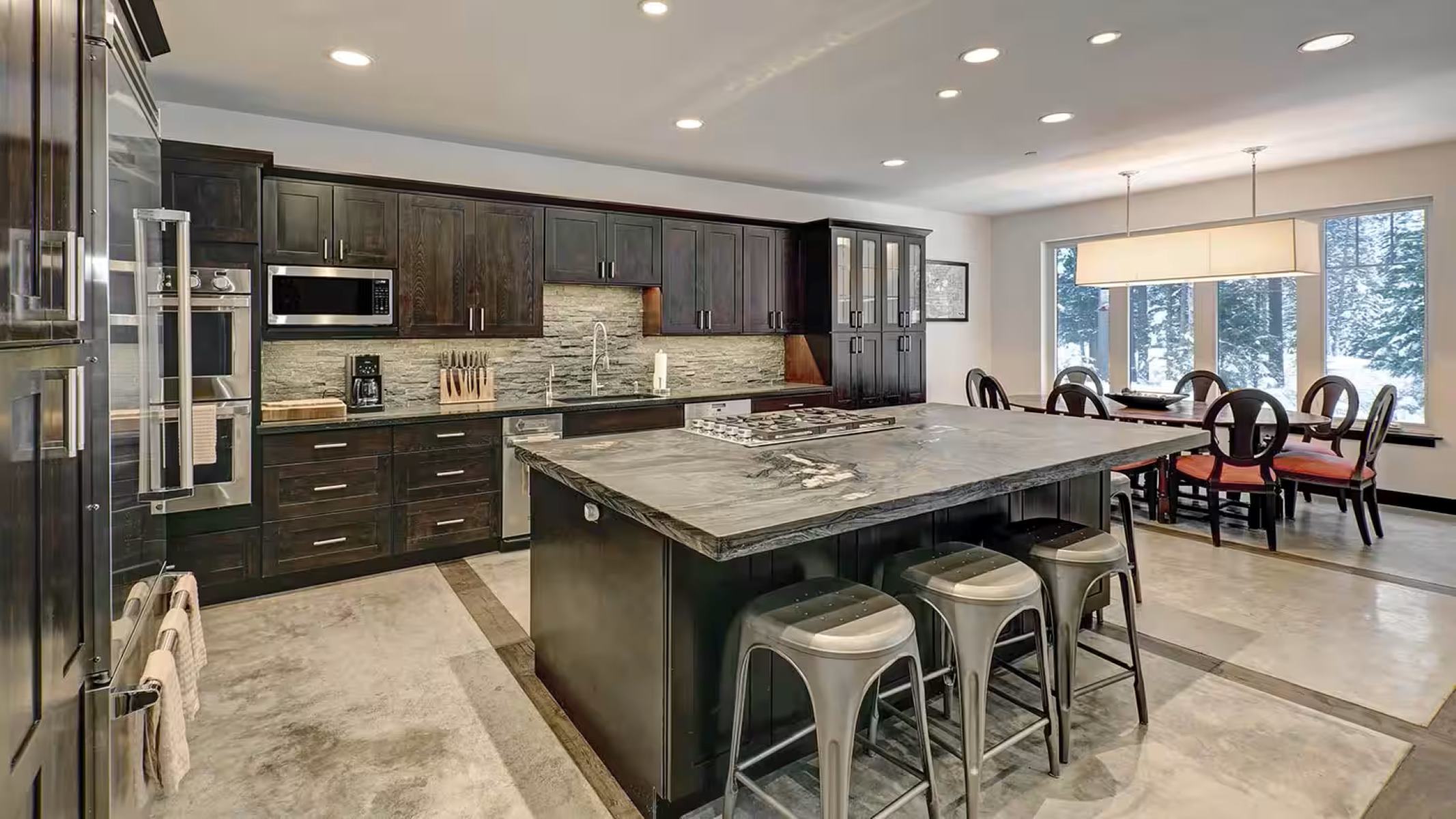
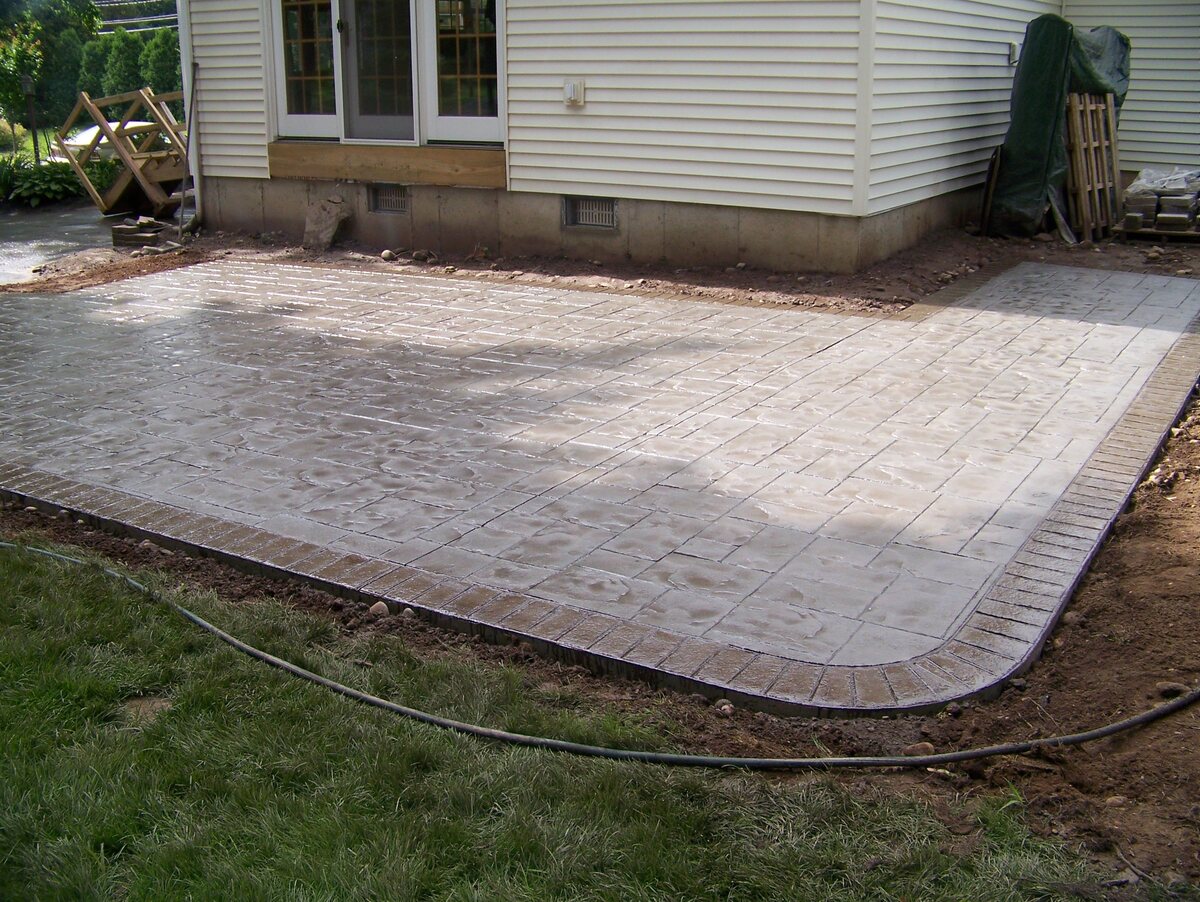

0 thoughts on “How Much Does A Concrete Floor Cost”